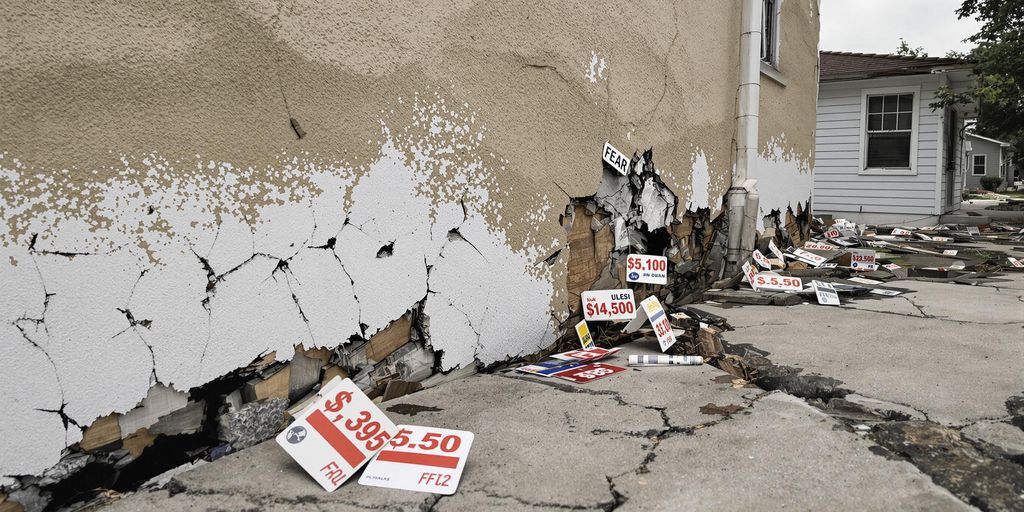Florida Housing Market Faces Potential Downturn
The Florida housing market, once a scorching hotbed of rapid price appreciation, is now showing signs of significant cooling, with several areas flagged as being at high risk of price declines. Factors such as affordability challenges, rising inventory, and increased insurance costs are contributing to this shift.
Key Takeaways
- Several Florida housing markets are identified as having a high risk of price declines.
- Affordability issues, driven by high prices and mortgage rates, are pricing out many potential buyers.
- Rising homeowners insurance costs are adding a significant burden to property ownership in the state.
- Markets that experienced the most rapid price growth are now showing the most vulnerability.
Markets At High Risk
Recent data indicates that specific Florida markets are particularly vulnerable to price drops. According to one analysis, Cape Coral, Lakeland, North Port, St. Petersburg, and West Palm Beach are among the top five markets with the highest risk of a significant price decline. These areas saw substantial price increases in recent years, making them susceptible to a market correction.
Factors Driving The Slowdown
The rapid appreciation seen in Florida’s housing market over the past few years is now facing headwinds. Key factors contributing to the cooling include:
- Affordability Crisis: Even with some price dips, home prices remain significantly higher than pre-pandemic levels. Combined with higher mortgage rates, this makes affording a home a challenge for many Floridians.
- Increased Inventory: As the market slows, more homes are staying on the market longer, leading to increased inventory. This shift from a seller’s market to a buyer’s market gives buyers more leverage.
- Soaring Insurance Costs: Florida’s homeowners insurance premiums have escalated dramatically due to increased natural disasters, adding a substantial and often unpredictable cost to homeownership.
- Cooling Migration and Investor Pullback: While Florida continues to attract residents, the frantic pace of migration has slowed. Additionally, investors are becoming more cautious due to higher interest rates and the prospect of falling prices.
Specific Market Concerns
Cape Coral, in particular, has been identified as the "worst housing market in America" by some reports, with prices dropping significantly from their peak. Other areas like Tampa and Winter Haven are also showing signs of weakness, with price trends indicating a softening market. Even popular metropolitan areas are not immune, as the overall trend suggests a broader market adjustment.
What This Means For Buyers and Sellers
For potential buyers, the cooling market might present opportunities, but caution is advised. It’s crucial to research local conditions, factor in all ownership costs, and negotiate effectively. Sellers in these high-risk markets need to be realistic about pricing, as the market conditions have shifted, and homes may take longer to sell.
Sources
- Housing Market Cooling In FL, New Data Shows, Patch.
- 5 Popular Florida Housing Markets Are at High Risk of Price Crash, Norada Real Estate Investments.
- 2 Florida Housing Markets Flagged for a Major Price Decline Risk, Norada Real Estate Investments.
- Florida City Real Estate Market Crashes After Being Super Hot A Few Years Ago — Costs of Climate Change –
CleanTechnica, CleanTechnica. - Redirecting…, The News-Press.


